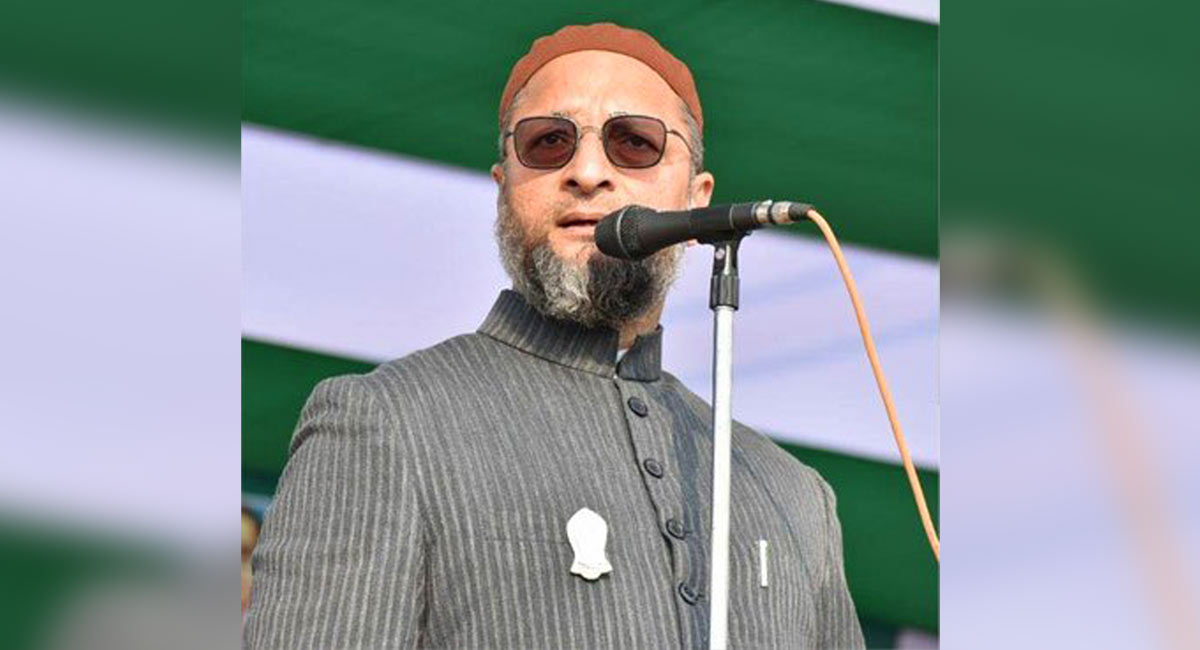Hijab-wearing Muslim woman will become PM of India someday: Asaduddin Owaisi after SC order

All India Majlis-e-Ittehadul Muslimeen (AIMIM) Chief Asaduddin Owaisi on Friday said that a Hijab-wearing Muslim woman will become Prime Minister of India someday.
He was speaking after following the Supreme Court’s split verdict on the hijab ban. He also said that Muslim women covering their heads doesn’t mean they cover their minds as well.
“I have said this before and will say it again…many people got stomach ache and heartache, couldn’t sleep at night, when I said if not in my lifetime then after me, a hijab-wearing Muslim woman will become the Prime Minister of this country,” he said.
The two-judge bench of the Supreme Court on Thursday gave divergent views while pronouncing judgement on Hijab issues in educational institutions: Justice Hemant Gupta held that the essential religious practices of the followers of the Sikh faith cannot be made the basis of wearing the headscarf by the believers of Islamic faith while Sudhanshu Dhulia said that it may or may not be a matter of essential religious practice, but is a matter of conscience, belief, and expression.
A bench of justices Hemant Gupta and Sudhanshu Dhulia pronounced a split judgement on the Hijab issue, as one upheld the Karnataka HC judgement, while the other set it aside.
Justice Gupta, upholding the Karnataka High Court judgement, said, “The essential religious practices of the followers of Sikh faith cannot be made the basis of wearing of hijab/headscarf by the believers of the Islamic faith.” Justice Gupta’s submission came while observing the appellants have made a comparison with the rights of the followers of the Sikh faith by arguing that since Kirpan is allowed in terms of Explanation I to Article 25, therefore, the students who want to wear a headscarf should be equally protected as in the case of the followers of the Sikh students.
“It appears that no appeal has been filed against the judgment of the Full Bench. Thus, the said judgment is final as of today,” Justice Gupta observed as it also noted that the issue in the present appeals is not the essential religious practices of the people following the Sikh faith.
Justice Gupta said that it would not be proper to discuss the essential religious practices of the followers of the said faith without hearing them.
“The practices of each of the faith have to be examined on the basis of the tenets of that religion alone,” Justice Gupta said.
However, Justice Dhulia, who also remarked that what constitutes Essential Religious Practices was left to the doctrine of that religion itself, said that “it may or may not be a matter of essential religious practice, but it still is, a matter of conscience, belief, and expression.” Contrary to Justice Dhulia’s opinion, Justice Gupta said that the practice of wearing of hijab may be a ‘religious practice’ or an ‘essential religious practice’ or it may be social conduct for the women of Islamic faith, but the religious belief cannot be carried to a secular school maintained out of State funds.
“The interpretations by the believers of the faith about wearing a headscarf is the belief or faith of an individual. The religious belief cannot be carried to a secular school maintained out of State funds,” Justice Gupta said.
“It is open to the students to carry their faith in a school which permits them to wear Hijab or any other mark, maybe tilak, which can be identified to a person holding a particular religious belief but the State is within its jurisdiction to direct that the apparent symbols of religious beliefs cannot be carried to a school maintained by the state from the State funds. Thus, the practice of wearing hijab could be restricted by the State in terms of the Government Order,” Justice Gupta said.
But Justice Dhulia said, under our Constitutional scheme, wearing a hijab should be simply a matter of Choice and said that “If a Muslim girl wants to wear hijab, even inside her classroom, she cannot be stopped, if it is worn as a matter of her choice, as it may be the only way her conservative family will permit her to go to school, and in those cases, her hijab is her ticket to education.” Justice Dhulia also opined that Courts are not the forums to solve theological questions. “Courts are not well equipped to do that for various reasons, but most importantly because there will always be more than one viewpoint on a particular religious matter, and therefore nothing gives the authority to the Court to pick one over the other. The Courts, however, must interfere when the boundaries set by the Constitution are broken, or where unjustified restrictions are imposed,” Justice Dhulia said.
Justice Dhulia also said that in any case as to what constitutes an Essential Religious Practice, in all its complexities, is a matter which is pending consideration before a Nine Judge Constitutional bench of top Court and therefore in any case it may not be proper for him to go any further into this aspect.
As both judges disagreed with each other, therefore they referred the matter before the Chief Justice of India for constitution of an appropriate bench.
The court was hearing various appeals challenging an order passed by the Full Bench of the Karnataka High Court on March 15, which dismissed the pleas challenging the Government order dated February 5. Karnataka Government Order had directed the Government schools in Karnataka to abide by the prescribed uniform, and the private schools were directed to mandate a uniform as decided by their Board of Management.







